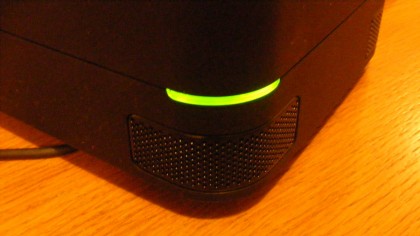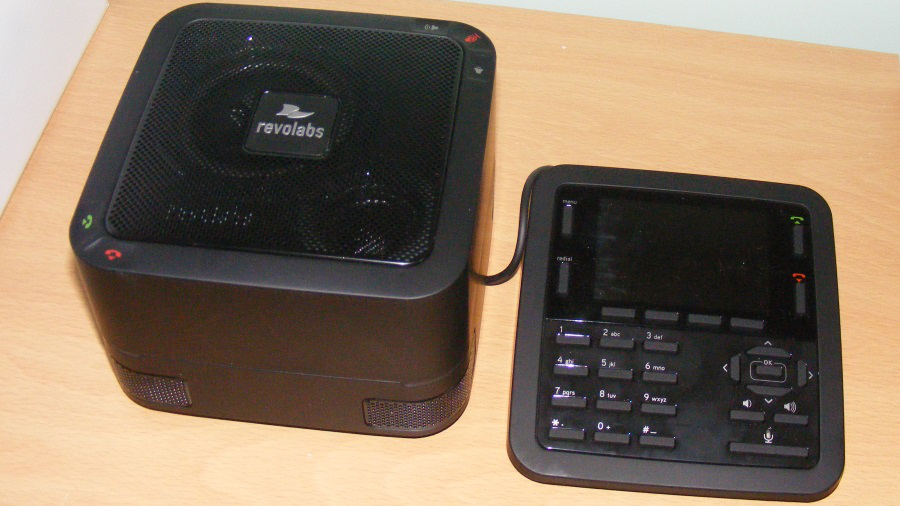Why you can trust TechRadar
Using the product
In the box you have the two main parts of the unit, plus USB and Ethernet cables and a brief 'quick start' leaflet. It's easy enough to put it together and there's a more detailed PDF instruction leaflet on the Revolabs' website if you get stuck.
Once you have the device set up and powered on there are a number of ways you can configure its settings. This can be done via the dialler unit which has a simple menu system, or you can enter the unit's IP address in your browser and use a web interface. Alternatively admins can supply the settings via a file on an FTP provisioning server.
For USB usage you need to download and install a small device manager application that lets you tell the UC 1000 which client software you're using. There is a slight trap for the unwary in that USB isn't active until you turn it on via the dialler, and we spent a frustrating 10 minutes wondering why we were getting no sound until we worked this out – the quick start leaflet doesn't mention it.

When the device is active there's a green LED on each corner of the speaker to let you know it's live – these turn red when a call is muted. Sound quality from the speakers is good and you can opt for voice enhance, bass boost or treble boost settings according to preference. The microphones are particularly impressive, picking up normal conversational speech levels and relaying the results with minimal distortion.
The dialler unit is straightforward enough to use, though the buttons are rather rubbery and imprecise, a bit disappointing in a £600 (about $895, AU$1250) piece of kit. The display is clear and makes it easy to see what's happening, plus you can set a time after which it dims when not in use to save energy.
Verdict
Overall the Revolabs FLX UC 1000 is a nicely designed and well-built device that won't look out of place in an executive environment. Speaker quality and mic pick up are both very good, delivering excellent call quality.
There are some snags – the buttons on the dialler don't feel particularly high quality and the quick start setup leaflet could be better. The need for PoE could be frustrating for some, but on the plus side it does minimise the number of cables needed.
Sign up to the TechRadar Pro newsletter to get all the top news, opinion, features and guidance your business needs to succeed!
Once it's set up the main functions are easy to use and the FLX UC 1000 has remote configuration options to keep admins in big companies happy. At around £600 (about $895, AU$1250) it isn't cheap, but in a business environment where there's a regular need to make conference calls it could quickly pay for itself.
Ian Barker worked in information technology before discovering that writing about computers was easier than fixing them. He has worked for a staff writer on a range of computer magazines including PC Extreme, was editor of PC Utilities, and has written for TechRadar, BetaNews, IT Pro Portal, and LatestGadgets.
